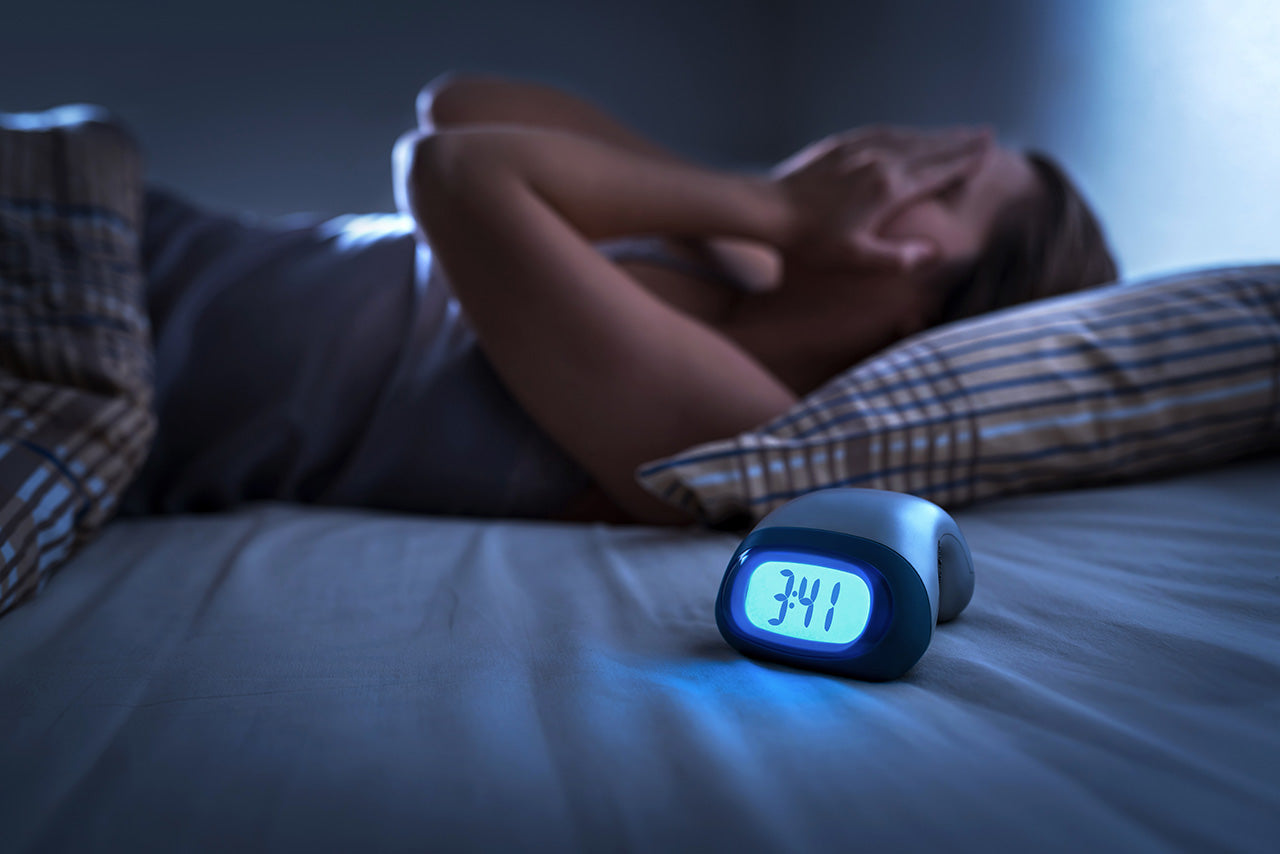
WELLNESS
Cortisol and Sleep: How Stress Affects Your Rest

In today’s fast-paced world, many of us are familiar with the feelings of stress and how it can impact our daily lives. One area where stress can have a sneaky effect is on our sleep. Cortisol, often referred to as the "stress hormone," plays a crucial role in the body's sleep-wake cycle. Understanding the relationship between cortisol and sleep is key to improving both your rest and overall health.
What is cortisol? How does it impact our sleep schedule?
Cortisol is produced by the adrenal glands in response to signals from the brain, specifically through the hypothalamic-pituitary-adrenal (HPA) axis. One of cortisol’s main roles is regulating your body's response to stress, but it also influences the body's internal clock, known as the circadian rhythm.
Cortisol levels naturally fluctuate throughout the day and night:
- Morning peak: Cortisol levels are highest in the morning, usually between 6 a.m. and 8 a.m. This surge helps to wake you up and get you ready for the day. It's what helps you feel alert and energetic.
- Daytime decline: After peaking in the morning, cortisol levels gradually decrease throughout the day.
- Evening drop: In the evening, cortisol levels are at their lowest, preparing the body for rest and sleep.
- Nighttime levels: Ideally, cortisol remains low throughout the night to allow for uninterrupted, deep sleep.
When this natural cycle is disrupted due to chronic stress, your body can release too much cortisol at inappropriate times, particularly in the evening. High cortisol levels at night can keep you alert, making it difficult to fall asleep or stay asleep, and can negatively impact your overall sleep quality.
Signs Stress is Impacting Your Sleep
If you’re struggling to get restful sleep, stress-induced cortisol levels might be a contributing factor. Here are some signs that stress is interfering with your sleep:
- Difficulty falling asleep: Elevated cortisol levels can make it challenging to relax and drift off to sleep. You might feel mentally wired or unable to shut off your thoughts, even if you’re physically tired.
- Waking up frequently during the night: When cortisol levels are high, you may wake up frequently during the night, disrupting your sleep cycles.
- Feeling restless or anxious at bedtime: Stress and high cortisol can make you feel jittery, restless, or anxious when you’re trying to unwind.
- Early waking: Some people with high cortisol wake up very early in the morning (4 or 5 a.m.) and find it hard to fall back asleep, even though they still feel tired.
- Daytime fatigue despite getting enough sleep: If your sleep is being disrupted by high cortisol levels, you may not experience the restorative benefits of sleep, leaving you feeling tired, sluggish, or irritable during the day.
Tips for Restoring a Healthy Sleep Schedule
If you suspect that stress and cortisol are affecting your sleep, there are several lifestyle adjustments you can make to help restore balance and improve your rest.
- Create a Consistent Sleep Routine: Maintaining a regular sleep schedule is essential for regulating your circadian rhythm and supporting healthy cortisol levels. Try to go to bed and wake up at the same time every day, even on weekends. This consistency helps signal to your body when it’s time to sleep and wake up.
- Limit Caffeine and Sugar Intake: Caffeine and sugar can both contribute to spikes in cortisol, particularly when consumed late in the day. If you’re having trouble sleeping, it’s best to avoid caffeinated beverages (like coffee, tea, and energy drinks) in the afternoon and evening. Similarly, avoid sugary snacks or drinks, which can cause blood sugar levels to spike and contribute to restlessness.
- Reduce Screen Time Before Bed: Exposure to the blue light emitted by smartphones, tablets, and computers can interfere with the production of melatonin, the hormone that promotes sleep. Blue light can also stimulate the release of cortisol, keeping you awake. Aim to reduce screen time at least an hour before bed and opt for calming activities like reading or meditation instead.
- Exercise Regularly: Regular physical activity is one of the most effective ways to lower cortisol levels and improve sleep. Exercise helps reduce stress, burn off excess energy, and promote relaxation. However, avoid vigorous workouts too close to bedtime, as they can temporarily increase cortisol and make it harder to fall asleep.
- Practice Stress-Reduction Techniques: Incorporating stress-management practices into your daily routine can help keep cortisol levels in check. Techniques such as deep breathing, meditation, progressive muscle relaxation, or yoga can all help lower cortisol and promote a sense of calm. Taking 10-15 minutes a day to focus on mindfulness or relaxation can significantly improve sleep quality.
Foods & Supplements for Healthy Sleep
Certain foods and supplements can help promote restful sleep and lower cortisol levels:
- Magnesium-rich foods: Magnesium is a mineral that helps regulate cortisol levels and supports relaxation. Foods like leafy greens, nuts, seeds, and whole grains are great sources of magnesium. You can also consider taking Flavor & Fettle’s Magnesium Glycinate to help promote better sleep.
- Herbal teas: Teas made from herbs like chamomile, valerian root, and passionflower are known for their calming effects and can help promote relaxation and sleep.
- Ashwagandha: This adaptogenic herb has been shown to lower cortisol levels and help reduce stress. Ashwagandha supplements can be taken to help regulate the body’s response to stress and improve sleep quality. Shop Flavor & Fettle’s Organic Ashwagandha here.
- Melatonin supplements: If your natural sleep-wake cycle is disrupted, taking a melatonin supplement can help reset your circadian rhythm and improve sleep. Shop Flavor & Fettle’s Melatonin here.
Cortisol and sleep are intricately linked, with stress and elevated cortisol levels often interfering with your ability to get a good night’s rest.
By recognizing the signs that cortisol may be impacting your sleep and making key lifestyle changes, you can lower stress levels, promote relaxation, and improve your sleep quality.
Incorporating stress-reduction techniques, dietary adjustments, and healthy habits into your routine will help regulate cortisol levels and ensure that you wake up feeling refreshed and well-rested.































































